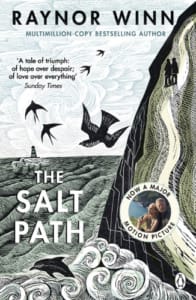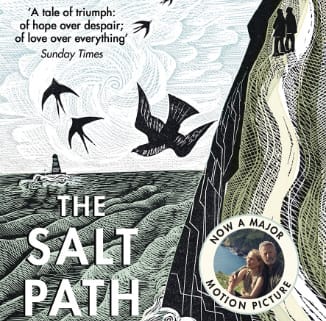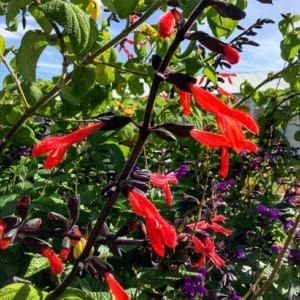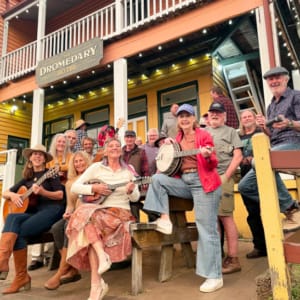The Salt Path
by Raynor Winn
reviewed by Wendy Tucker
 First published in 2018, this memoir/travelogue has had a new burst in popularity. It has been made into a much-hyped film and chosen by many libraries for their book clubs and for their Words and Music programs. It received glowing reviews and was shortlisted for the Costa Awards. It mainly attracted adjectives such as: inspirational, liberating, regenerative, courageous and, of course, life changing. And these adjectives usually mean that I won’t read it! It is another in the popular genre of firstly, a life changing event, followed by a seemingly impossible journey and ending in personal change and growth. But it is different.
First published in 2018, this memoir/travelogue has had a new burst in popularity. It has been made into a much-hyped film and chosen by many libraries for their book clubs and for their Words and Music programs. It received glowing reviews and was shortlisted for the Costa Awards. It mainly attracted adjectives such as: inspirational, liberating, regenerative, courageous and, of course, life changing. And these adjectives usually mean that I won’t read it! It is another in the popular genre of firstly, a life changing event, followed by a seemingly impossible journey and ending in personal change and growth. But it is different.
Ray and her husband Moth have lost their lovingly restored farm, home and B&B in rural Wales. It is not their fault and an example of an unjust legal system where those who can afford expensive lawyers are the winners. Only a day after the judgement, in which they lose everything, they learn that Moth has an incurable degenerative brain disease. Within a week, the bailiffs take possession. They have become the new middle-class homeless.
What can you do when you are in your early 50s, have lost all your worldly possessions and one of you is dying?
Ray and Moth decide to walk the Southwest Coast Path, from Minehead in Somerset, through north Devon, Cornwall and south Devon, to Poole in Dorset, via Land’s End. A 630 mile walk over two summers. They have very little money, so their equipment is at best inadequate, they are not experienced walkers and yet they thrive. There are many highs and lows, just as this cliff path is often steep and unforgiving. A diet of noodles, rice and fudge bars, with the occasional treat of a pasty seems to sustain them, as well as the wild and wonderful scenery, with moonlight swims and the kindness of strangers.
Not all strangers are kind, and neither is the weather nor the path. There is difficulty in wild camping when there is no flat ground.
Winn gives vivid descriptions of the area and short histories of this part of ancient and wild Britain. Winn also adds her thoughts on homelessness and statistics about homelessness in Britain.
We follow them with the hope that all will be well.
I was involved, I hoped it would turn out well, but I also found this memoir repetitive. Mainly, and I’m sure I’m in a minority, I felt I never really felt the grit, the dirt or the hunger. At the end, I felt that I still didn’t know this flesh and blood couple.


